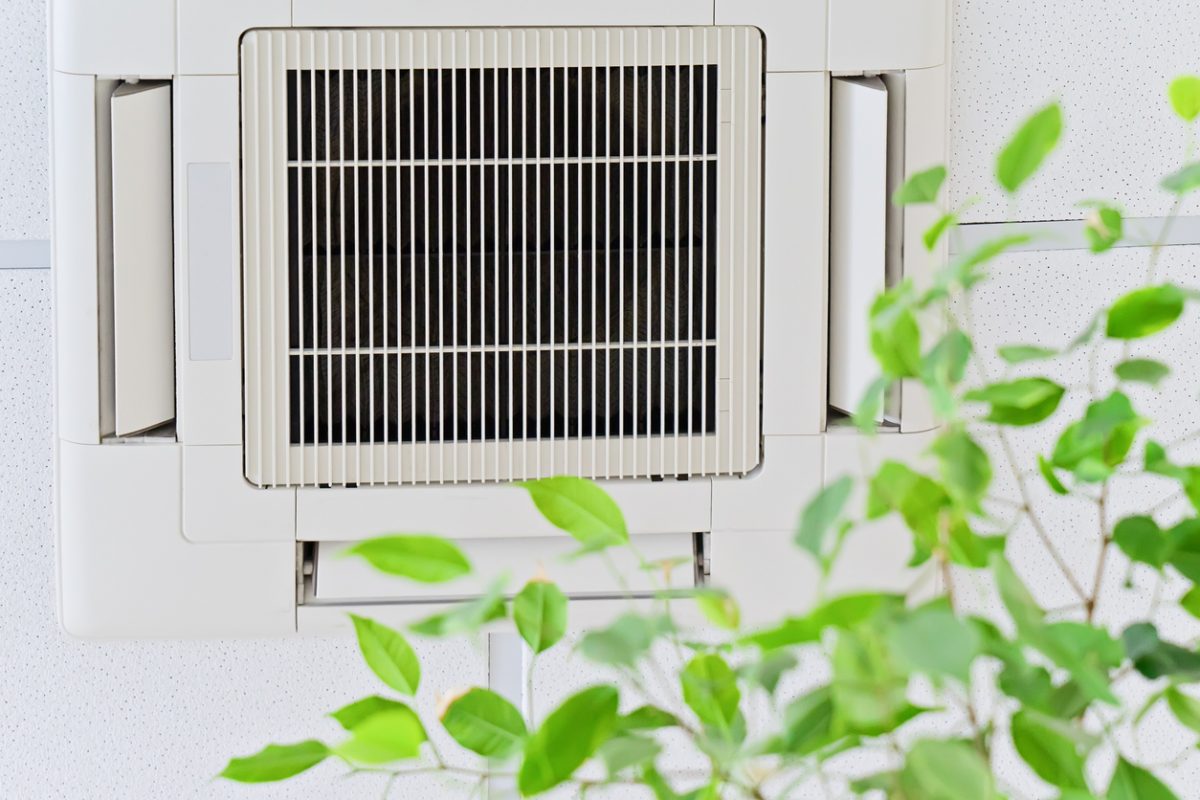Did you know the average American spends as much as 87% of their time indoors? That’s just one of many reasons why your indoor air quality is so important. Contaminants such as dirt, dust, pet dander, dust mites, asbestos, lead particles, pollen, smoke, mold, mildew and carbon monoxide can make your indoor air up to five times more polluted than the air outside. If you have an asthma or allergy sufferer in your family, your indoor air could be making their respiratory issues worse. Here are some ways you can help clean it up!
1. Get indoor plants – Indoor plants are great natural air purifiers. Even small ferns or spider plants can make a big difference for your indoor air. Just be careful if you have pets. Some indoor plants can be hazardous to your pet’s health if they ingest them.
2. Change your HVAC filter – When working to clean up your indoor air, it’s best to change your HVAC filter monthly. This helps the filter work more effectively at pulling harmful pollutants out of your indoor air. It also saves you money because your HVAC system doesn’t have to work as hard to push air through a fresh filter compared to a dirty gunky one.
3. Change other air filters – Don’t forget about the other filters in your home. The clothes dryer, overhead cooking vents and your vacuum can also have filters that need to be cleaned. Follow manufacturer’s instructions for cleaning or changing these filters.
4. Check air ducts – Your air ducts can be a trap for dust and other grime that can become airborne and travel through your vents into your home. If you have dirty ducts, have them cleaned professionally to help clean up your indoor air.
5. Keep floors clean – Walking in from outside can track a lot of dust, dirt and even pollen into your home. Normal walking and movement can cause these particles to become airborne in your home. Vacuum rugs and carpets at least weekly and be sure to sweep up hard floors weekly as well to capture all the grime that gets tracked inside.
6. Use cooking vents – Always use your vents when cooking to help filter out airborne cooking oil particles and by-products from gas stoves such as carbon monoxide and nitrogen dioxide.
7. Control humidity – Humidity is a big deal in South Carolina and too much of it can lead to mold and mildew growth. Keep humidity in check to avoid mold spores in your air that can make you and your family sick. If you experience high humidity in your home, consider investing in a dehumidifier for your HVAC system to help filter excess moisture out of your indoor air.
Indoor air quality is an important issue for every home. We spend so much time indoors and many people suffer with allergies and asthma. Poor indoor air quality can also impact your health and that of your family. Use these seven tips to help clean up your indoor air.






